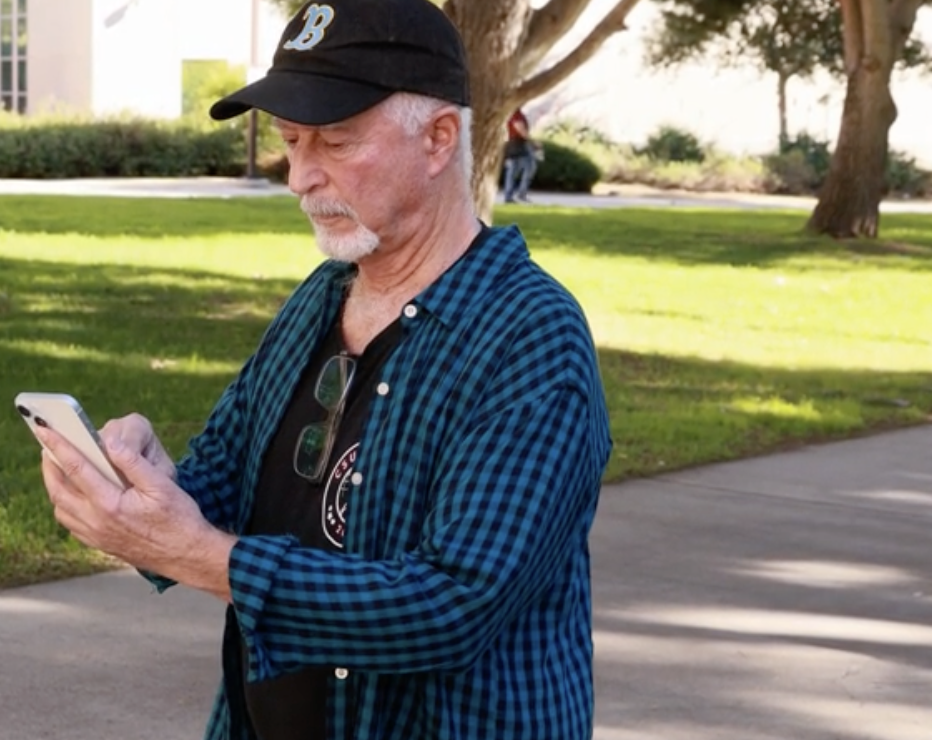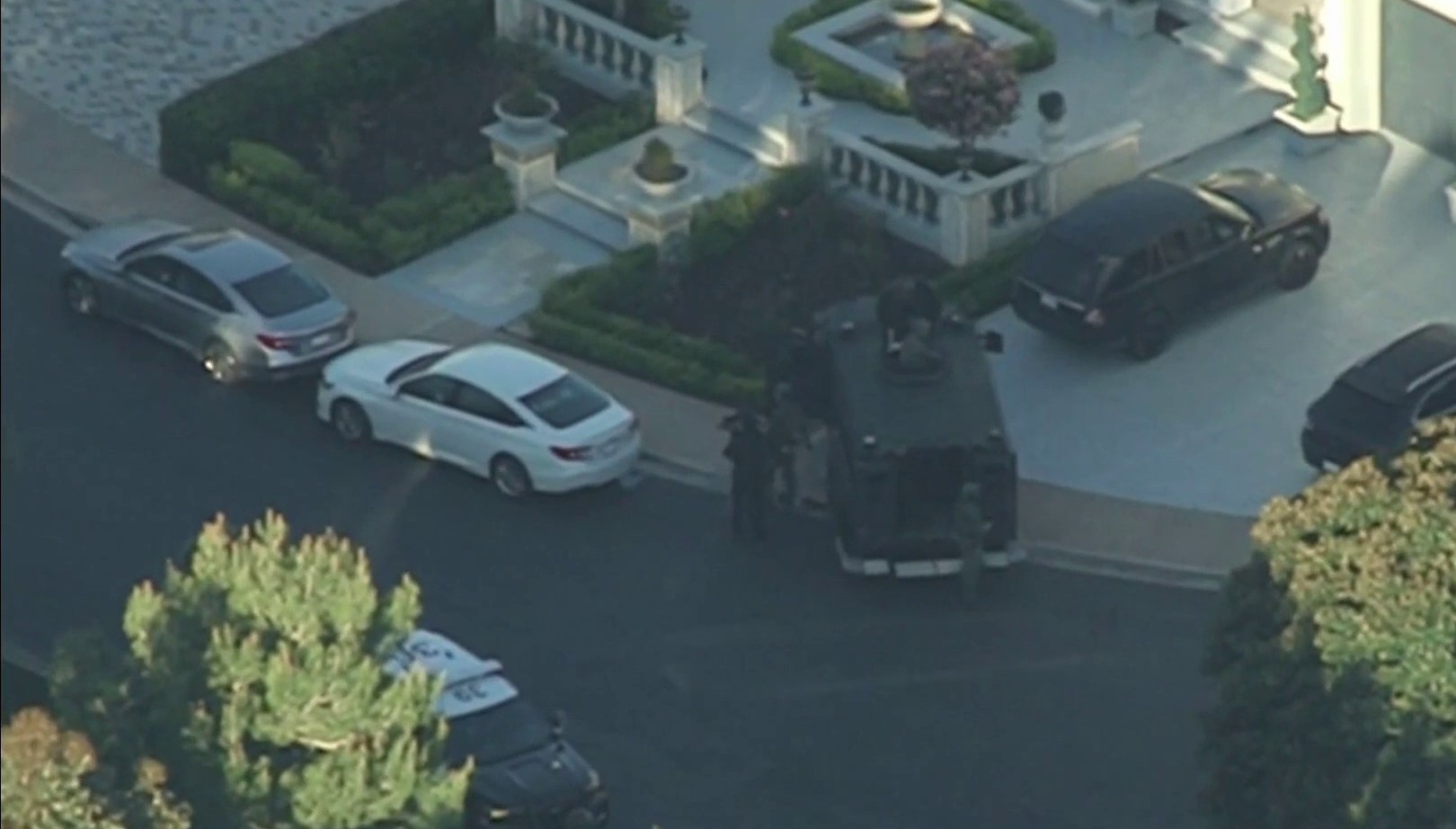Los Angeles Superior Court Judge John Shepard Wiley told attorneys on both sides of the Miramonte child abuse case that, "It's showtime, you need to be ready."
It's been nearly three years since the arrest of former teacher Mark Berndt on charges of lewd acts against children, and almost a year since his conviction. Tuesday marks the technical beginning of the civil trial against the school district that employed him.
Attorneys for about 70 Miramonte Elementary School students have filed a lawsuit against the Los Angeles Unified School District on the grounds that they claim the district knew about the dangers of keeping Berndt in the classroom, and did nothing to stop him. Berndt is serving 25 years in state prison but never took the stand to discuss the allegations that he spoon-fed his own semen to students, among other things.
A settlement conference scheduled for Tuesday was canceled as attorneys for both sides prepared to move closer to trial. Judge Wiley, though, said he wanted to clear up late motions in the case before he was willing to start picking a jury.
Among the motions considered was one regarding media access and coverage of the trial. NBC4 has been repeatedly denied camera access to proceedings leading up to the trial and Judge Wiley explained his reasons behind that.
"It became an infomercial," he said in open court, adding that the media attention on the case appeared to lead some attorneys to "make a show" for the camera. But the judge also said that he believed the public's access to this particular case was important.
"This is a press-friendly court," he said, "that is the American way."
NBC4 is awaiting an official order from the court about the amount of access that will be granted but Wiley says he is inclined to allow for TV coverage of opening statements, closing arguments and the verdict; coverage of the trial itself, along with witness testimony, would be restricted to note-taking without the use of audio or visual media coverage.
Attorneys for LAUSD argued against some aspects of media coverage in the trial. Attorney Wayne Mason of the Sedgwick Lawfirm out of Texas, spoke against certain attorneys "feeding the media" with information from the case.
News
Top news of the day
"Not to limit the media," Mason said, "but because the case must be tried in the courtroom, the time is now that lawyers should speak in the courtroom to the jury only until the end of trial."
However, the judge refused to allow him to continue his argument, suggesting it was leading to a request for a gag order to keep attorneys on both sides from making public comment.
Plaintiffs' attorney Luis Carrillo filed a motion accusing LAUSD Assistant General Counsel Greg McNair of misconduct, claiming he coerced an employee to sign a declaration she did not believe to be true. McNair was in the courtroom Tuesday, but the judge did not hear the motion.
It stems from the deposition of Rosa Gianopoulos, an employee in the LAUSD General Counsel's office who's declaration in September was in question. The district had made a request for additional time to submit the declaration because of "errors."
In a sworn deposition, Gianopoulos said she took a medical leave from the district because she felt pressure from her bosses.
"I felt very anxious to time limits that were given to me," she said, "unable to put my thoughts together of what I wanted to say on that declaration and I started to feel chest pain and shortness of breath, and it was too much."
When asked if it was McNair who was making her feel that way, she was instructed not to answer. LAUSD attorney Craig Barnes claiming, "attorney-client privilege, work-product protection, instruct her not to answer." When Gianopoulos returned to work, she claimed child abuse reports she was working on had disappeared from her office.
"The whole file," she said, "it was changed from the location."
A number of witnesses who planned to testify in the case came and went from the courtroom, including one man referred to as "Mr. A." The judge said it was to protect his identity. But Mr. A appeared only because he had missed a scheduled deposition in the case.
"I don't want to be going through this again," he told the court. "My daughter went through this at the school and I don't want to be going through this."
Explaining the need for getting the facts of the case, Wiley explained to Mr. A, "This isn't up to you. To find the truth we need people to tell the truth."
It's an example of the last-minute issues that have arisen in the case that has some saying could cost LAUSD hundreds of millions of dollars. The main question revolves around negligence: did the district know Berndt was a threat and if so, why wasn't anything done to keep him away from the children?
"The district needs an intervention," says attorney Brian Claypool, who represents some of the students in the case. "They aren't willing to admit that they have this problem, that it even exists in their district and they need help."
A spokesman for the two law firms representing LAUSD spoke about the start of the trial calling the coming weeks "difficult," saying, "We are saddened for all parties to be preparing to start trying these cases, as we know how difficult the litigation process can be. Like the community, we were appalled to learn of Mr. Berndt's deviant behavior, and we share in the pain felt by these children and families. While the full facts of the matter will unfold in the courtroom, we know that Mr. Berndt went to extreme lengths to hide his disgusting fetish."
While the case could take weeks to argue, the selection of the jury could take more than the usual few days. One issue still being discussed is the juror questionnaire. As it stands now, 54 questions make up the questionnaire but Wiley made the decision to split the questions into two, saving nine questions he wants to seal from public view. The questions deal with personal information related to whether any of the prospective jurors have ever been accused, convicted, a victim of or knows a victim of child abuse.
"These are sensitive inquiries," Wiley said, adding that sealing the questions may help ease any fears jurors have that would preclude them from being honest.
"We need to know who can be fair in this case," he added. "We're trying to further the cause of truth and justice in a fair trial."
As the case moves closer to open testimony, it could also open up aspects of how LAUSD deals with child abuse allegations in ways it has to this date kept private. NBC4 has been required to request numerous records by way of the California Public Records Act when the District has been less-than-forthcoming with information. Much of what has been requested has also been denied, claiming attorney-client privilege.
Sean Rossall, who has been the spokesman for LAUSD since the Miramonte case unfolded, issued a statement regarding the continued attempts by the District to protect children.
Rossall wrote, "The school district works hard to ensure that it supports, adopts and leads efforts to enhance student safety and protect the more than 600,000 children we serve daily. We know that protecting our students and ensuring a safe learning environment requires constant vigilance. Most importantly, ensuring the highest level of safety for our students demands ongoing partnership with parents, community and elected leaders. Protecting our students is a responsibility that requires work from all of us."
The Miramonte trial is set to take place inside Room 222 of the Stanley Mosk Courthouse in Downtown LA. It is the largest courthouse in the county and is expected to be filled to capacity with the amount of attorneys, witnesses and public interest in the case. Judge Wiley has asked for attorneys on both sides to prepare a calendar for jurors that goes into February 2015, in the event the case takes that long to argue.
Jury selection is expected to begin next week.



